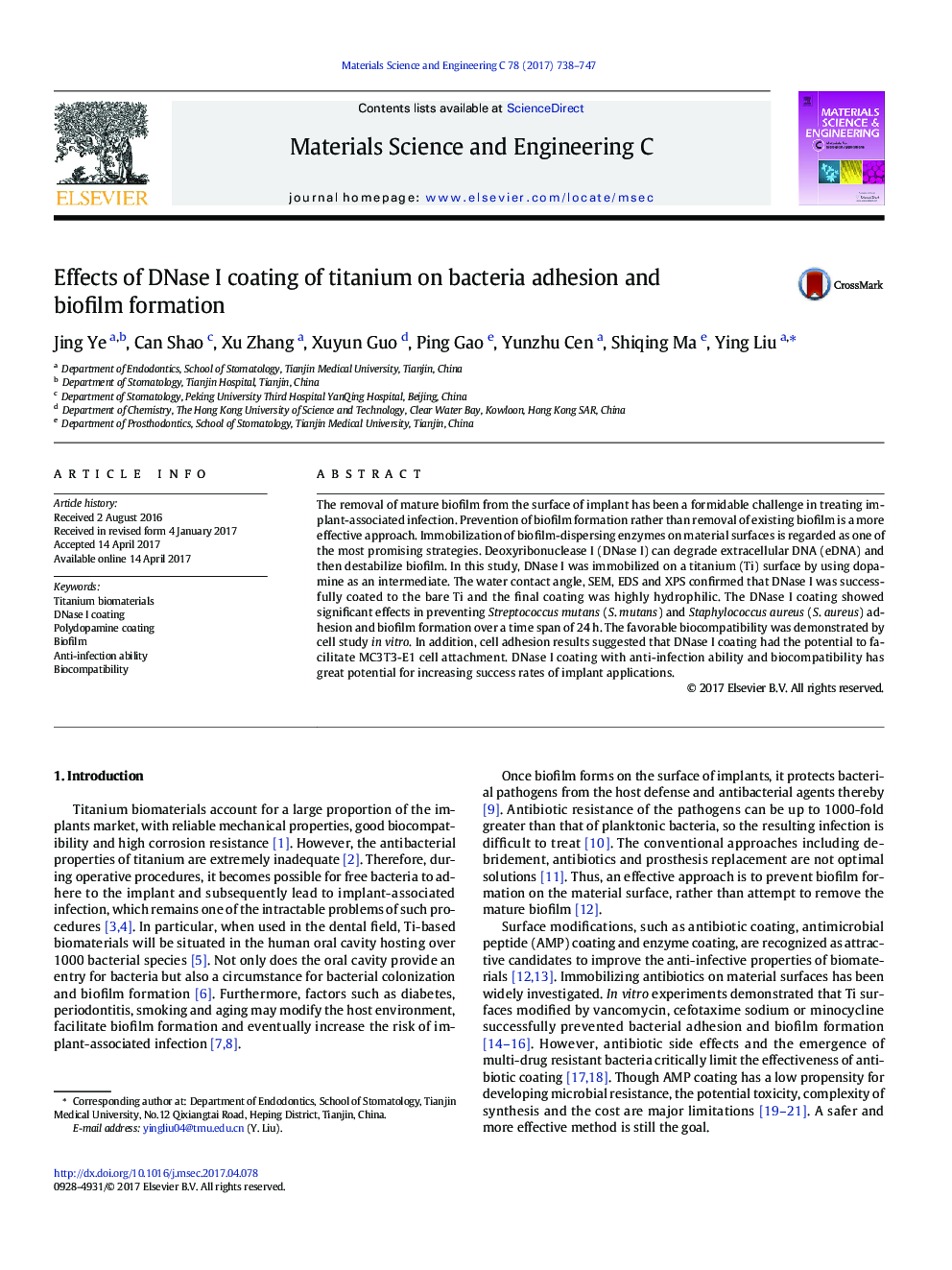| Article ID | Journal | Published Year | Pages | File Type |
|---|---|---|---|---|
| 5434468 | Materials Science and Engineering: C | 2017 | 10 Pages |
â¢DNase I coating was successfully immobilized on the Ti surface.â¢DNase I coating demonstrated good biocompatibility.â¢DNase I coating has the potential to enhance adherence of cells.â¢The new coating effectively prevented bacteria adhesion and biofilm formation.â¢The bi-functional Ti-pDA-DNase I is a promising anti-biofilm strategy for implants.
The removal of mature biofilm from the surface of implant has been a formidable challenge in treating implant-associated infection. Prevention of biofilm formation rather than removal of existing biofilm is a more effective approach. Immobilization of biofilm-dispersing enzymes on material surfaces is regarded as one of the most promising strategies. Deoxyribonuclease I (DNase I) can degrade extracellular DNA (eDNA) and then destabilize biofilm. In this study, DNase I was immobilized on a titanium (Ti) surface by using dopamine as an intermediate. The water contact angle, SEM, EDS and XPS confirmed that DNase I was successfully coated to the bare Ti and the final coating was highly hydrophilic. The DNase I coating showed significant effects in preventing Streptococcus mutans (S. mutans) and Staphylococcus aureus (S. aureus) adhesion and biofilm formation over a time span of 24Â h. The favorable biocompatibility was demonstrated by cell study in vitro. In addition, cell adhesion results suggested that DNase I coating had the potential to facilitate MC3T3-E1 cell attachment. DNase I coating with anti-infection ability and biocompatibility has great potential for increasing success rates of implant applications.
